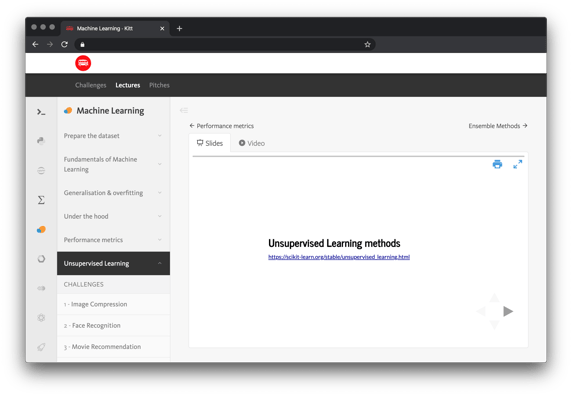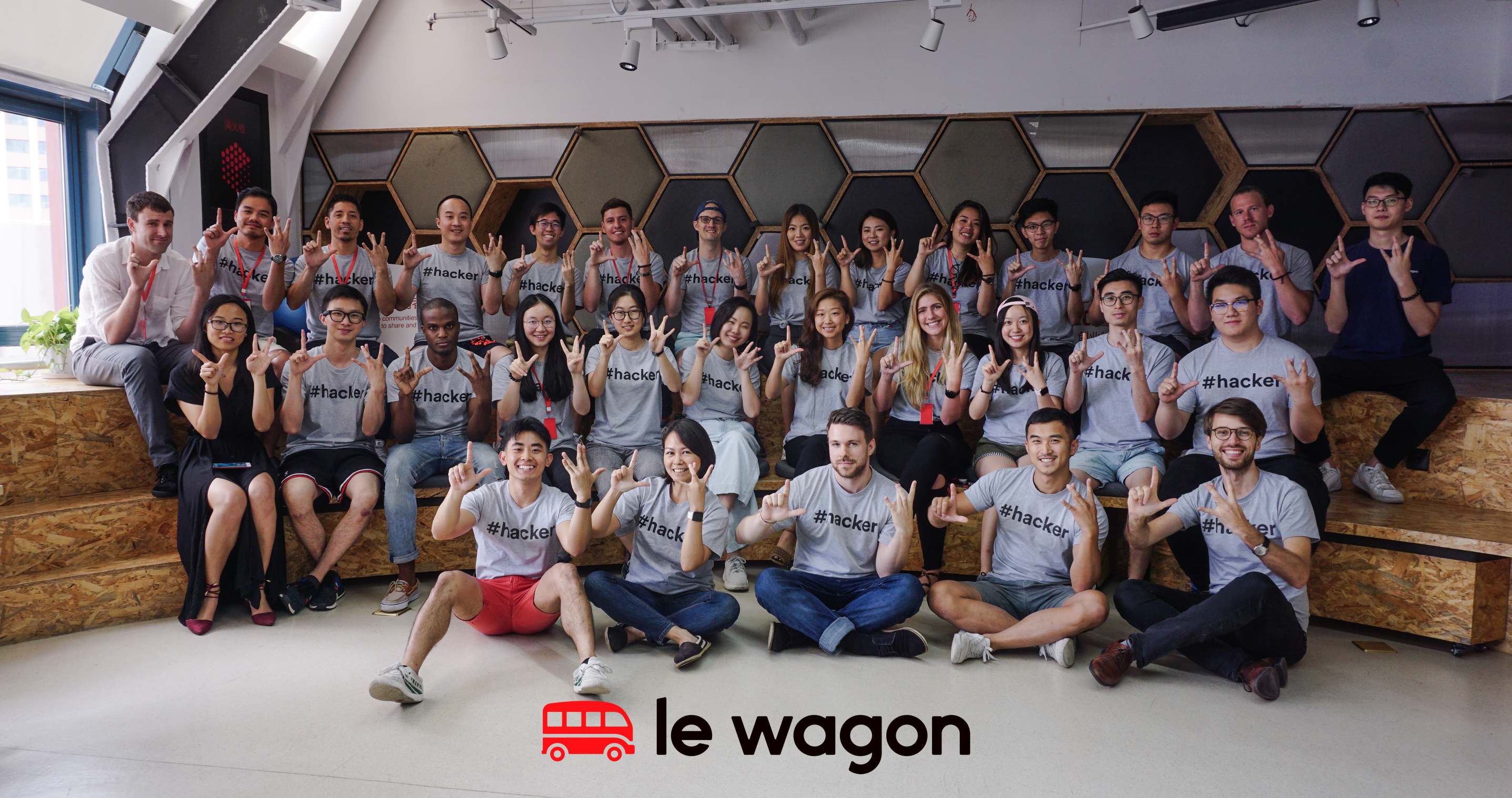Think like a Data Scientist
In 9 intensive weeks, work on all the logical steps of how data flows in an organisation, from collection to use case. From the basics of Pandas to advanced Machine Learning models, you will finish this bootcamp knowing how to collect, store, clean, explore, transform and predict Data in production environments, working in teams with the best-in-class tool belt.
Next intakes in China, exclusively in Shanghai:
- June 29th - August 28th, 2020 FULL
- October 19th - December 18th, 2020
What do you get out of it?
-
Relevant Data analytics tools to boost your commercial value
-
A portfolio of real-world projects that you can point to and prove your competency.
-
A lifetime community of 7,000+ like-minded learners
What is the curriculum?
Data Science Foundations (2 weeks)
-
Use and master Python core aspects used in Data Science
-
Learn Data Sourcing from an exhaustive list of techniques (CSV, API, Scraping, SQL, etc.)
-
Sharpen your SQL skills with advanced queries (JOIN, PARTITION, RANK, etc.)
-
Master the data scientist toolkit (Jupyter suite) and perform your first data analysis with Pandas
-
An image is worth a thousand words, that’s why Data Visualization is key in communicating one’s result. Never used a violin chart? You will!
-
Grasp the Mathematical concepts behind Data Science: statistics, probability and linear algebra.
Machine Learning in Production (2 weeks)
-
Dive head first into Machine Learning and complete a full tour of the scikit-learn library. 2 weeks of the program will take you from your first linear regression to advanced unsupervised learning models.
-
Go from your first linear regression to advanced unsupervised learning models in only 2 weeks.
Data Engineering in Production (1 week)
-
Master Google Cloud Platform to store and retrieve data with BigQuery and deploy models to production
-
Learn to “extract, load and transform” (ETL) data into a Data Warehouse.
-
Design a data pipeline to build a robust and scalable system.
-
Leverage the scale of the cloud in your exploratory analysis from a Jupyter interface and run Machine Learning algorithms on the Google Cloud stack.
Deep Learning (1 week)
-
Spend a week on Deep Learning, use neural networks and transfer learning to quickly build great models for Image Recognition, Time series & Natural Language Processing.
Data Science Projects (3 weeks)
-
Learn the best practices when working on a Data Science project with a tech team
-
Build your data service or data product during the 2 final weeks: a personalised recommendations system, a search engine, an image recognition app, a supply chain optimisation tool or an e-commerce promotion & pricing app. Be ambitious and creative!

Meet Peers and Mentors offline, together study Lectures & Challenges online.
Revisit the course after graduation.
Why learning in China?
Central authorities, led by Ministry of Industry and Information Technology (MIIT) identified AI as the next economic mojo. The country has chosen Big Data to change millions of lives. Applications in facial recognition, voice recognition, autonomous driving are already rolling out at scale.
This context makes China the ultimate laboratory for any aspiring data scientist to learn. Don't miss out this blog post where we wrap up the possible outcomes for you in China.
Recommended book: AI Superpowers: China, Silicon Valley, and the New World Order by Kai-Fu Lee, an Artificial Intelligence pioneer, expert on China and a venture capitalist.
Who is this program for?
Anyone can become a data professional, regardless of age, educational background, or prior work experience. You don’t need a math degree / CS degree to become a successful data scientist.
Today, data scientists will almost NEVER code an algorithm from scratch or derive any sort of math formula. In the business world, companies care about results. A data scientist who leverages existing tools will outperform one who tries to do everything from scratch. As long as you can prove that you have these skills, someone will give you a shot.

Do I need to know programming?
Yes, a fair minimum. Our Data Science bootcamp is very intense and will jump into Python libraries & advanced topics from the very first week. Unlike our FullStack Web Development bootcamp where we spend 3 weeks learning back-end programming with Ruby from scratch, applicants for the Data Science bootcamp need some programming practice.
How much? You must be comfortable with data types & variables, conditions, loops, functions and the two data structures list & dict. If you know those topics in some other language than Python, feel free to embark on those free Fundamentals & Intermediate courses before the bootcamp.
If you don't know any programming yet, you want to begin right away with this free Codecademy track, followed by more practice with Katas on Codewars. E.g., (8kyu) DNA to RNA Conversion, (8kyu) Playing Banjo, (7kyu) Split the Bill...
Do I need to know maths?
A minimum math level is required for the batch. We need you to be comfortable with Functions, their Derivatives & System of linear equations. To get up to speed, some preparation work is given to applicants before the bootcamp start: Calculus, Linear Algebra & Statistics.

International, diverse community of learners in Shanghai.
Average 30 years old.
Why join Le Wagon?
Le Wagon is a coding bootcamp launched in Paris 5 years ago by ex-Google and ex-HSBC Engineer who wanted to make coding accessible and relevant for everyone.
Le Wagon is now running in 38 cities worldwide and has more than 7,000 alumni. Its cutting-edge curriculum and world-class teachers give students all the skills and tools needed to kick-start their tech career, land a promising job, or launch their own business.
Le Wagon was ranked #1 coding bootcamp worldwide by online review platforms for 3 years in a row.